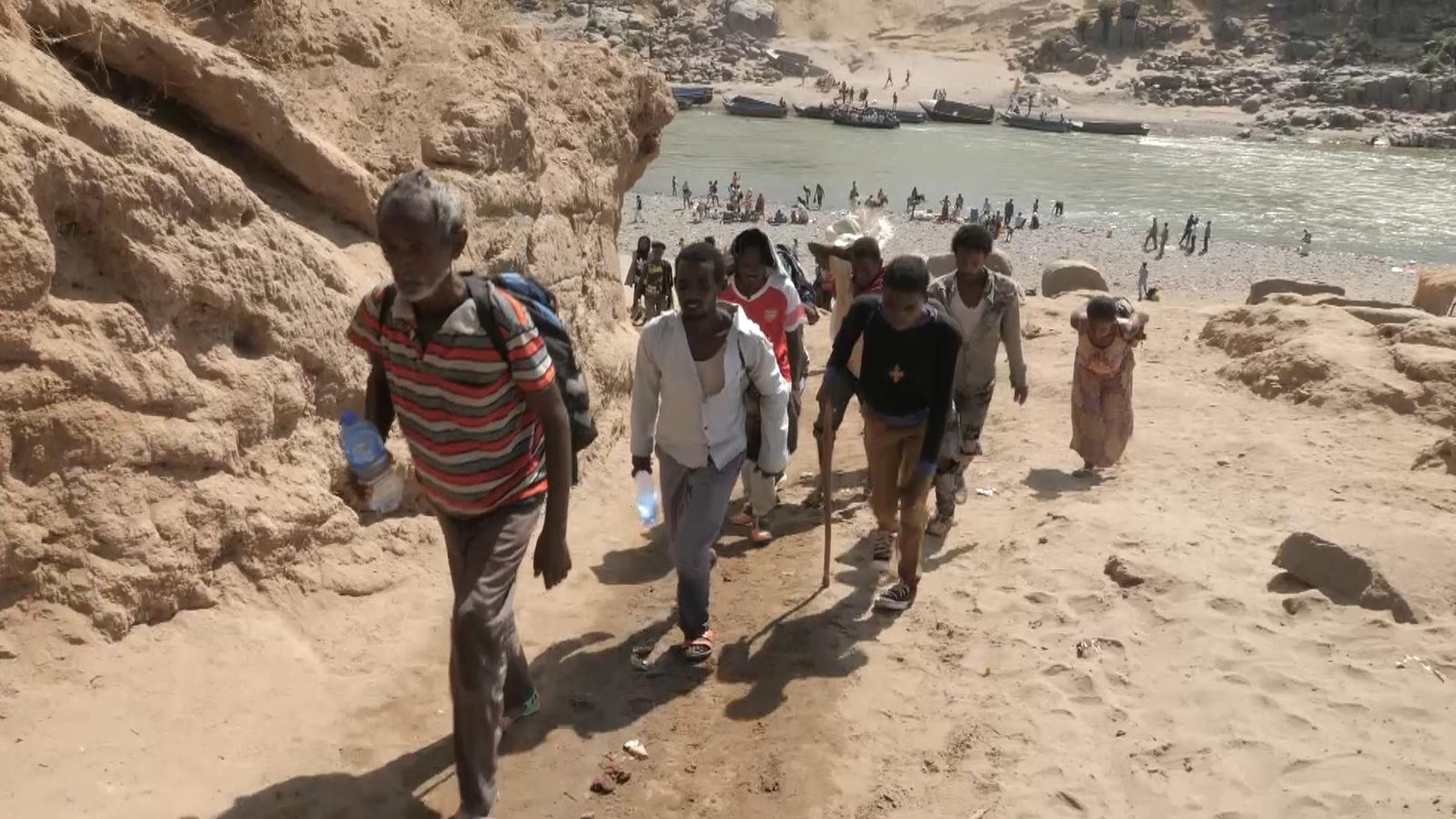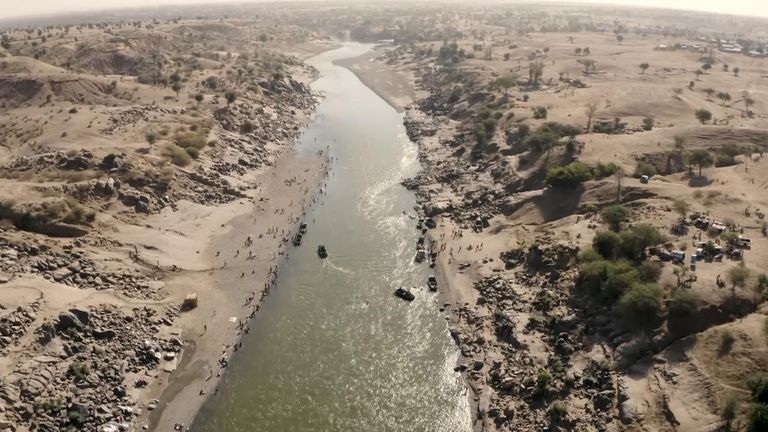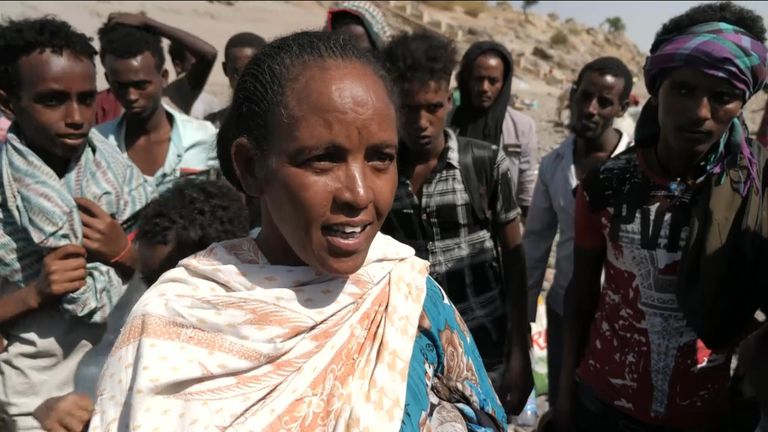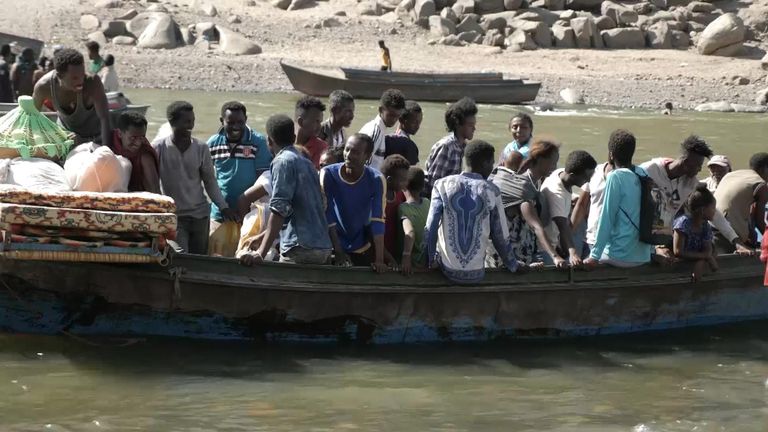We stood on the Sudanese side of the Tekeze River and watched them as they clambered down the canyon wall.
Some brought beds, others carried children – but most travellers had come with nothing.
They climbed into unstable metal boats and their drivers pushed off into the river’s fast flowing current. It marked the final stage in a desperate journey for Ethiopians from the state of Tigray.
Over the past few weeks, they have come in their tens of thousands to flee bombing, shelling and ethnic persecution – but they must cross this watercourse in an overloaded boat if they wish to complete the journey.
“It took twelve days to get here,” said one relieved looking refugee. “We had to live in a forest, a forest, but now we have reached Sudan.”
The Tekeze River forms a natural frontier between Ethiopia and neighbouring Sudan and at least 30,000 refugees have decided they have to negotiate it. It is a momentous decision that many will have taken in an instant.
“Our clothes, our home, our money – they took it all; we don’t have anything. We came naked just like this,” said mother-of-eight Nadai Zarai.
This isolated spot is now filled with frenetic activity, and Sudanese military sources have told Sky News they expect thousands more to make the trip.
Ethiopian Prime Minister Abiy Ahmed has issued an ultimatum ordering the leaders of Tigray state to surrender. But few, if any, expect them to do so.
We took a boat over to the Ethiopian side to see where the refugees are gathering and travelled to a local town called Dima.
From the back pair of motorcycles, we saw refugees sheltering from the sun in dozens of homes and compounds. A final moment, perhaps, to catch their breath before they reach relative safety in Sudan.
Back on the other side of the river, we watched new arrivals march up the hill and head in the direction of a tent run by the UN’s refugee agency, UNHCR.
There, they will collect a wrist band with a bar code entitling them to basic provisions and a blanket as well as a seat on a bus heading for a refugee camp located 10 to 12 hours away.
For many, it signals the start of something frighteningly unfamiliar, many miles from home.
“It’s heartbreaking,” said one young man. “I don’t know if I’ll ever return.”



